Novel Glenn Dyer
Visit to download the full and correct content document: https://textbookfull.com/product/the-torch-betrayal-a-conor-thorn-novel-glenn-dyer/
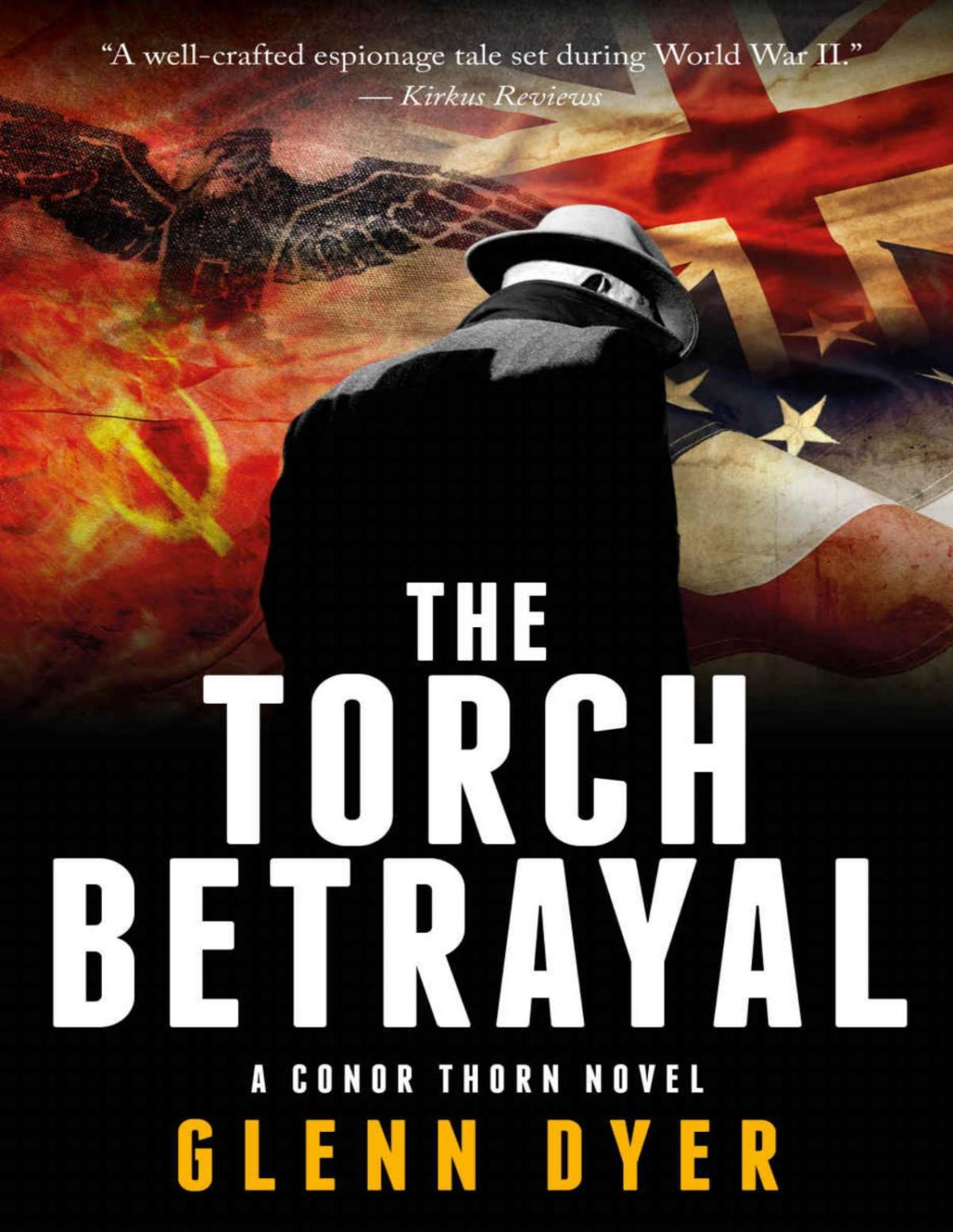
More products digital (pdf, epub, mobi) instant download maybe you interests ...
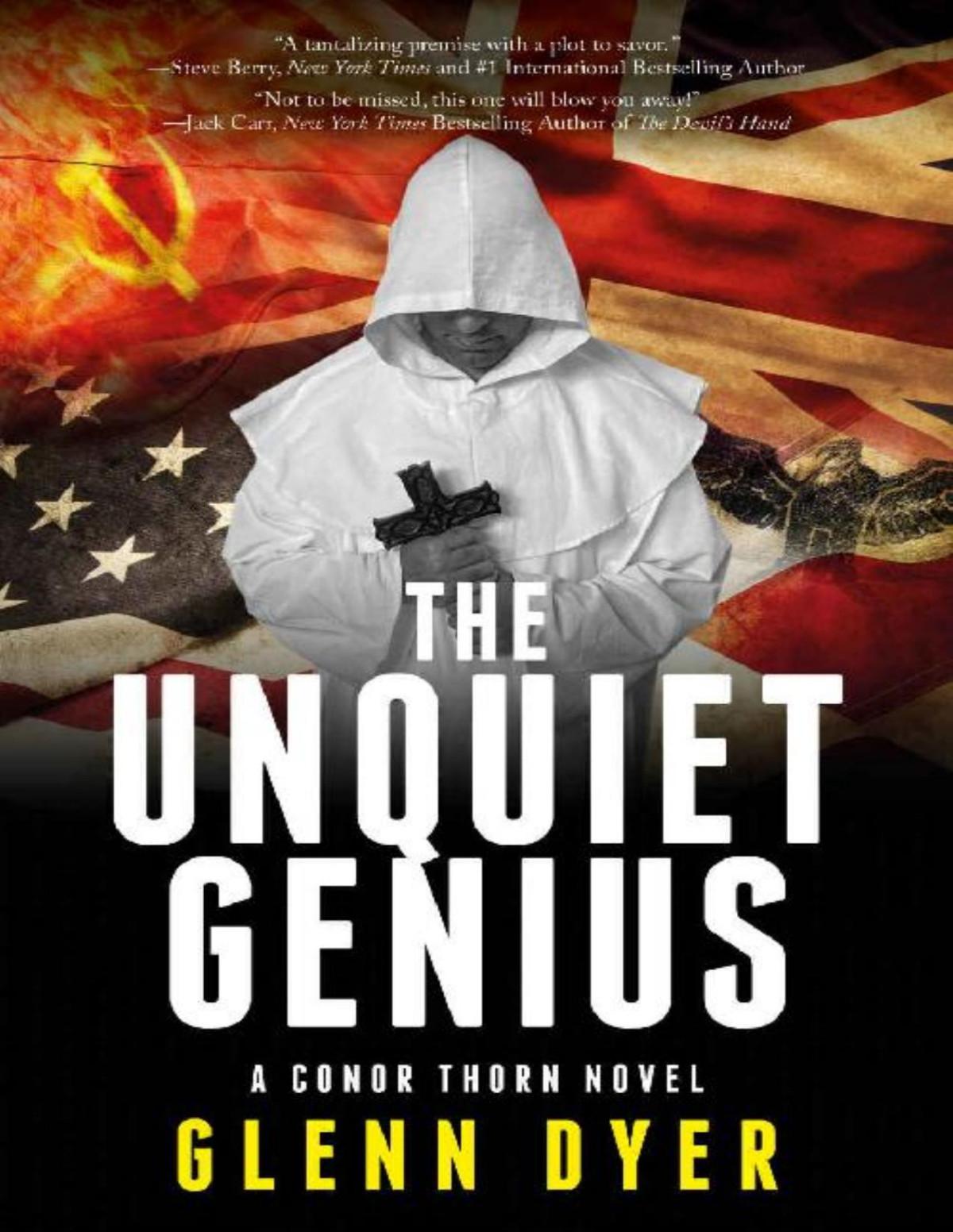
The
Unquiet
Genius 1st Edition Dyer Glenn
https://textbookfull.com/product/the-unquiet-genius-1st-editiondyer-glenn/
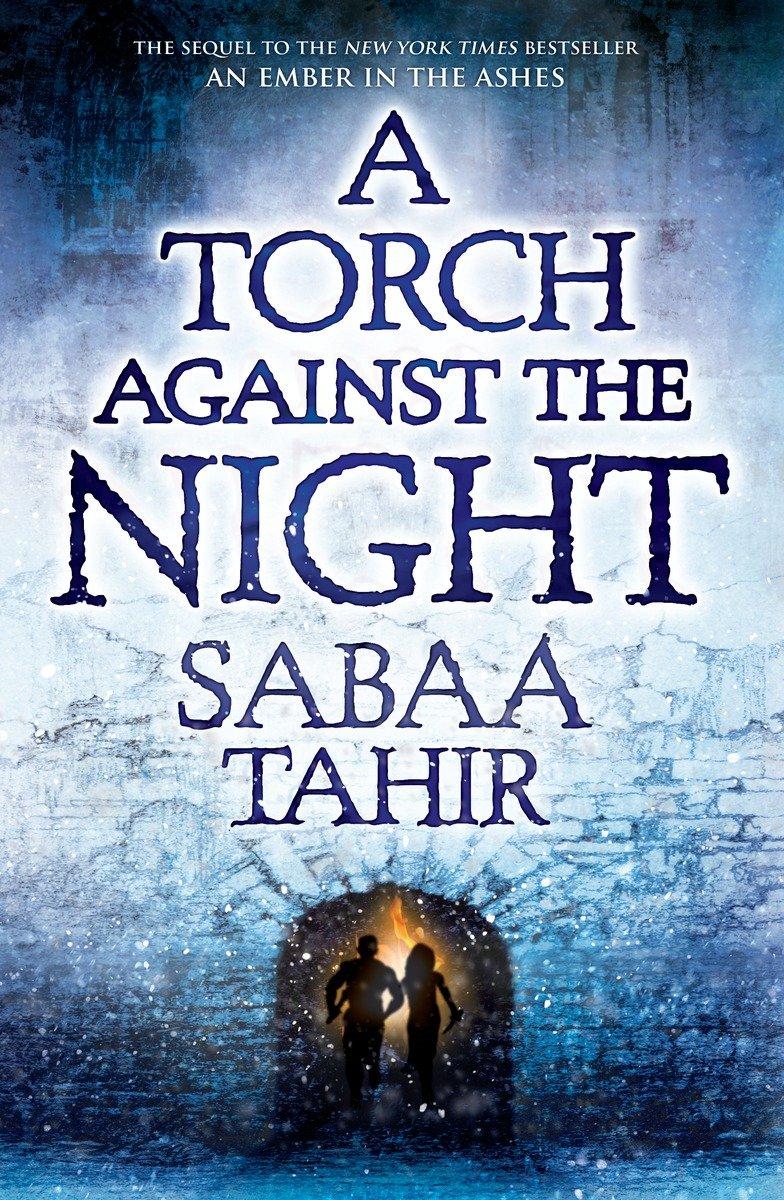
A Torch Against the Night 1st Edition Sabaa Tahir
https://textbookfull.com/product/a-torch-against-the-night-1stedition-sabaa-tahir/

The popular arts 2018 edition Edition Dyer
https://textbookfull.com/product/the-popular-arts-2018-editionedition-dyer/
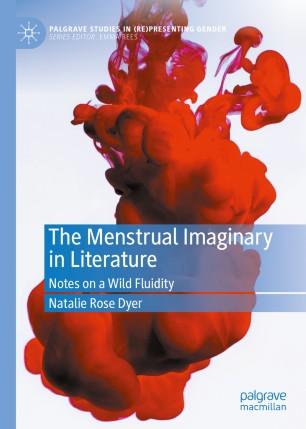
The Menstrual Imaginary in Literature Notes on a Wild Fluidity Natalie Rose Dyer
https://textbookfull.com/product/the-menstrual-imaginary-inliterature-notes-on-a-wild-fluidity-natalie-rose-dyer/
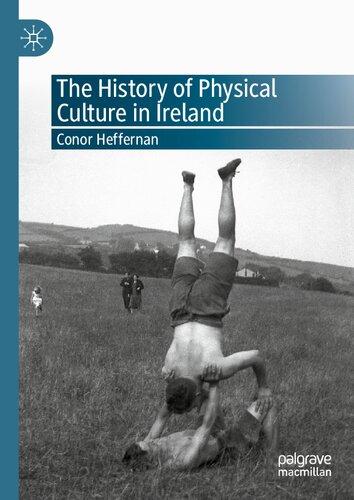
The History of Physical Culture in Ireland 1st Edition Conor Heffernan
https://textbookfull.com/product/the-history-of-physical-culturein-ireland-1st-edition-conor-heffernan/

The Complete Cosmic Horror Trilogy 1st Edition J. Thorn.
https://textbookfull.com/product/the-complete-cosmic-horrortrilogy-1st-edition-j-thorn/
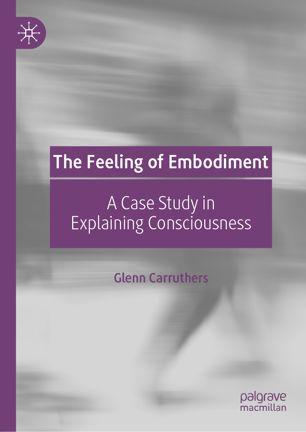
The Feeling of Embodiment: A Case Study in Explaining Consciousness Glenn Carruthers
https://textbookfull.com/product/the-feeling-of-embodiment-acase-study-in-explaining-consciousness-glenn-carruthers/
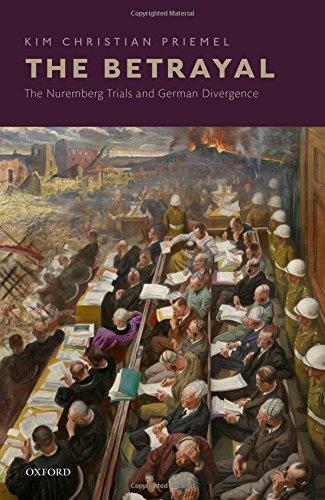
The betrayal : the Nuremberg trials and German divergence 1st Edition Priemel
https://textbookfull.com/product/the-betrayal-the-nurembergtrials-and-german-divergence-1st-edition-priemel/
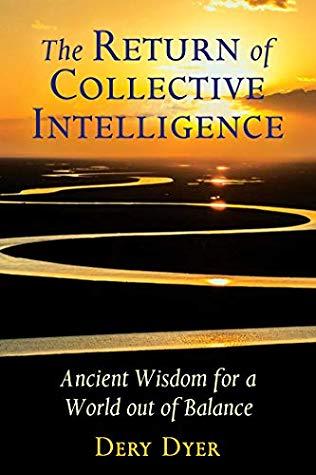
The Return of Collective Intelligence Ancient Wisdom for a World out of Balance Dery Dyer
https://textbookfull.com/product/the-return-of-collectiveintelligence-ancient-wisdom-for-a-world-out-of-balance-dery-dyer/
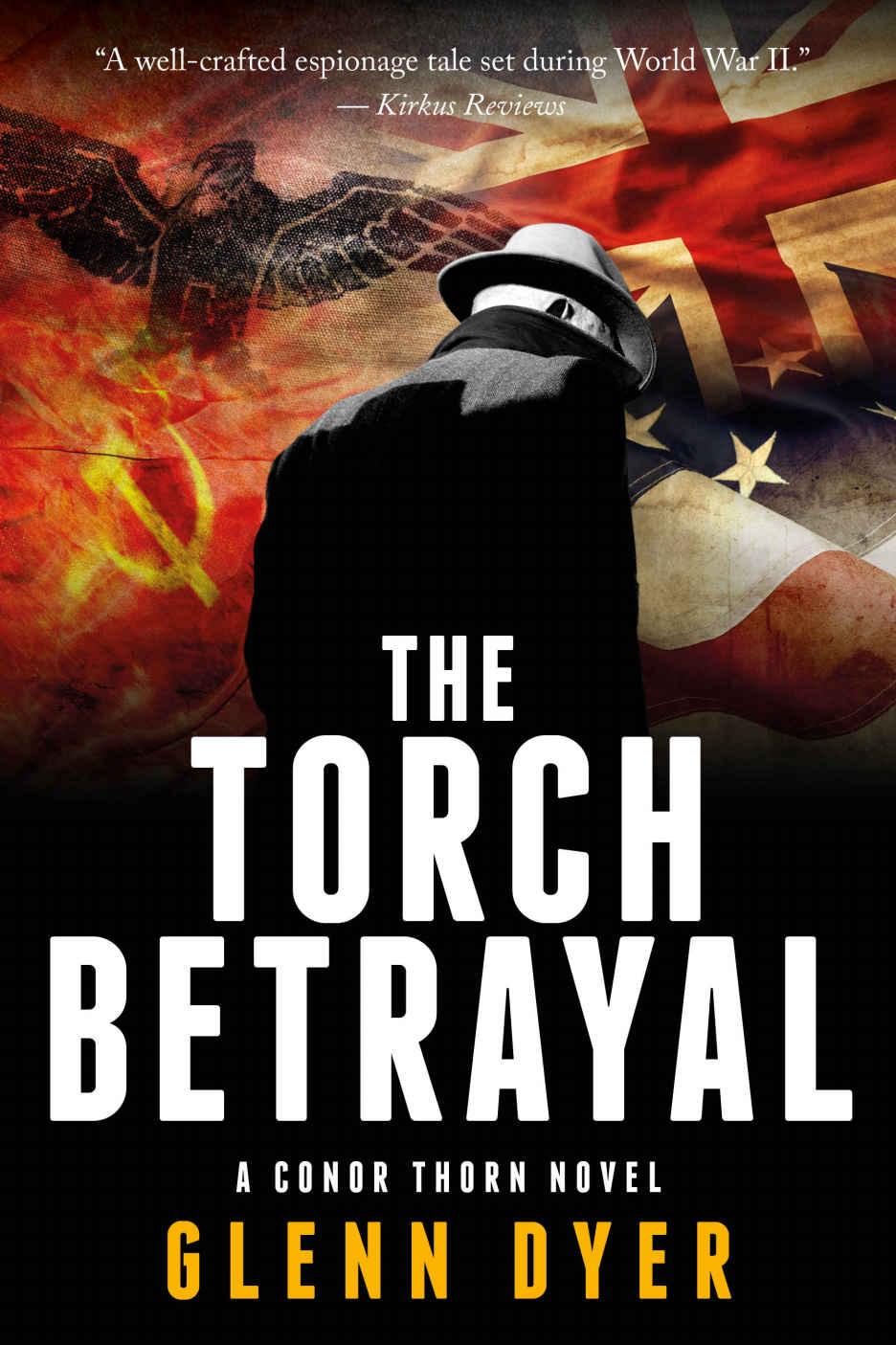
THE TORCH BETRAYAL
A CONOR THORN NOVEL
THE TORCH BETRAYAL
A CONOR THORN NOVEL
GLENN DYER
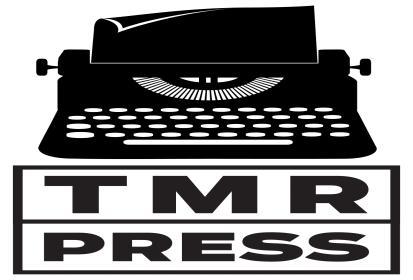
TMR PRESS, LLC
2057 MAHRE DRIVE PARK CITY, UTAH 84098
The Torch Betrayal is a work of fiction. References to real people, events, incidents, organizations, or locales are intended to provide a sense of authenticity. All other characters, and all incidents and dialogue, are drawn from the author’s imagination or are used fictitiously.
The Torch Betrayal. A Conor Thorn Novel (Book 1)
Copyright © 2017 by Glenn Dyer. All rights reserved. No part of this book may be used or reproduced in any form without permission.
www.glenndyer.net
First Edition
ISBN 978-0-9991173-1-6
Library of Congress Control Number: 2017916639
Printed in the United States of America
The OSS logo is a registered trademark of The OSS Society, Inc. and is used with its permission.
Cover and Interior Design: JD Smith Design
To my wife Chris
Who stood by me quietly and patiently nurturing my dream
The best way to use the gold of the Redeemer is for the redemption of those in peril.
- Saint Ambrose
There is a unanimity of opinion of Army officers here that the proposed operation [Torch] appears hazardous to the extent of less than a 50 percent chance of success.
- Cable regarding the invasion of North Africa from General George Marshall, Army Chief of Staff, to General Dwight Eisenhower, August 15, 1942
As desperate a venture as has ever been undertaken by any force in the world’s history.
- General George S. Patton
PROLOGUE
CHAPTER ONE
CHAPTER TWO
CHAPTER THREE
CHAPTER FOUR
CHAPTER FIVE
CHAPTER SIX
CHAPTER SEVEN
CHAPTER EIGHT
CHAPTER NINE
CHAPTER TEN
CHAPTER ELEVEN
CHAPTER TWELVE
CHAPTER THIRTEEN
CHAPTER FOURTEEN
CHAPTER FIFTEEN
CHAPTER SIXTEEN
CHAPTER SEVENTEEN
CHAPTER EIGHTEEN
CHAPTER NINETEEN
CHAPTER TWENTY
CHAPTER TWENTY-ONE
CHAPTER TWENTY-TWO
CHAPTER TWENTY-THREE
CHAPTER TWENTY-FOUR
CHAPTER TWENTY-FIVE
CHAPTER TWENTY-SIX
CHAPTER TWENTY-SEVEN
CHAPTER TWENTY-EIGHT
CHAPTER TWENTY-NINE
Contents
CHAPTER THIRTY
CHAPTER THIRTY-ONE
CHAPTER THIRTY-TWO
CHAPTER THIRTY-THREE
CHAPTER THIRTY-FOUR
CHAPTER THIRTY-FIVE
CHAPTER THIRTY-SIX
CHAPTER THIRTY-SEVEN
CHAPTER THIRTY-EIGHT
CHAPTER THIRTY-NINE
CHAPTER FORTY
CHAPTER FORTY-ONE
CHAPTER FORTY-TWO
CHAPTER FORTY-THREE
CHAPTER FORTY-FOUR
CHAPTER FORTY-FIVE
CHAPTER FORTY-SIX
CHAPTER FORTY-SEVEN
CHAPTER FORTY-EIGHT
CHAPTER FORTY-NINE
CHAPTER FIFTY
CHAPTER FIFTY-ONE
CHAPTER FIFTY-TWO
CHAPTER FIFTY-THREE
CHAPTER FIFTY-FOUR
EPILOGUE
AUTHOR’S NOTE
ACKNOWLEDGMENTS
PROLOGUE
0130 Hours, Friday, October 2, 1942
US Army Air Forces Film Lab, Camp Griffiss, London
The cognac-induced buzzing in his head ramped up. The warm air passing over the frosted ground created a moist fog that, coupled with the diversion he’d put in motion earlier, guaranteed that the odds of being undetected were in his favor. Nonetheless, he silently rehearsed his story if he was found on the base so late at night.
His breathing was still a bit labored from his sprint from the maintenance shed, where he’d set kerosene-soaked cloth fuses into the near-empty fiftygallon drums of aviation fuel. He estimated he had six or seven minutes until the heavy material of the rags burned their way into the drums. He lit a cigarette to calm himself, and when that failed, he flicked it into the fog and pulled a flask from his inside breast pocket and took a long pull, draining it. The cognac’s warm trail was less intense than it had been the first time. He returned the flask to his breast pocket and pulled his pack of Player’s Navy Cut cigarettes back out. As he shook the pack, he heard the first explosion; then, three seconds later, the second. He dropped his cigarettes.
“Shit,” he hissed. He crouched and lost his balance slightly. Both booms were unexpected. He had only been counting on a fire. When he’d tipped each drum, it had seemed there was an only inch or two of fuel—a careless miscalculation, but one that overdelivered on his need for a diversion. He heard shouts in the fog followed by two rifle shots. He checked his jacket pockets for his tools. Feeling the hard shapes of both the wire cutters and the ball-peen hammer, he began to slink across the frost-covered grass, toward the rear of the film lab. At the top of the stairwell that descended to the rear door, he stopped and turned to survey the grounds behind the building. Nothing was visible but fog and the top portion of the stand of trees he’d just exited. He headed down the stairwell. At the bottom, the drain was clogged with leaves and twigs, creating a small puddle. The fetid
water threw off a sharp stench, and his leather shoes wicked up the foul water.
The shouts of security personnel sounded farther away from down in the stairwell, and its thick concrete walls easily absorbed the sound of the hammer as he smashed through the dense pane of opaque security glass. Most of the shards landed inside, but a few pieces clung to the wire mesh embedded in the glass. He made quick work of the wire with the cutters, but when he started to push his hand through, it was too small. He reached again for his wire cutters, the handle catching on the lining of his pocket and tumbling out of his hand, into the putrid water at his feet.
The shouts were getting louder, so he forgot the cutters and shoved his hand back through the hole, the wire leaving several rows of scratches on the back of his hand and wrist, and up his arm, like a neatly plowed, bloody field.
The deadbolt slipped in his fingers at first, but he managed to get it unlocked, glass crunching under his feet once he finally stepped inside. The hallway was narrow, and with his right hand out, groping into the darkness so he didn’t run into anything, he took small, quick steps deeper into the building. The chemical smell that wafted from the film processors he crept past made his eyes water and the buzzing in his head got higher pitched. The fumes weakened his focus, but the sound of a pump in one of the processors engaging snapped him back to the present. He pressed on, the dim light from low-watt, naked bulbs hanging above each processor aiding his way.
He was looking for one document. Only one. He headed for a metal locker marked “Lt. Johannson,” located near the front counter of the lab. Once he found the locker, he looked in the deeply stained coffee mug; the key to the file cage was there. The locker reeked of perspiration. A jar of hair pomade along with a comb wedged into a hairbrush’s bristles sat in the bottom of the locker.
Inside the chain-link file cage, where there were rows of file cabinets, he hunted for the one marked “G.D.D.E.” Inside, among dozens of manila files, was the familiar leather satchel, a set of handcuffs attached to its brown Bakelite handle, and a small key to the lock on the satchel’s clasp. He opened the satchel and put its contents on a small wooden table in the center of the room and pulled his lighter out. He used the index finger on his uninjured hand to sift through the myriad documents. He was halfway
through the pile when he found it, and adrenaline shot through his veins. He raised his eyes to the ceiling, and his breathing quickened. It was a piece of letter-sized onionskin. Typed instructions with dates and times filled the page. The number 117 was in the upper-right corner. The paper crinkled sharply when he folded it and slid it into his inside breast pocket.
After returning the satchel to the file drawer, he locked the enclosure gate and raced back to Johannson’s locker. He dumped the key back into the mug and shut the locker. As he approached the rear door of the lab, he skidded to a stop, realizing he didn’t have a handkerchief or rag to clean up his blood, nor did he have the time to search for one. He pulled down the right sleeve of his jacket and swiped at the mess, but the drying blood was stubborn. As he pressed harder, he heard shouts from outside, closer this time. Plenty of people had his blood type—it was time to go. He stepped into the stairwell, his right foot landing unevenly in the puddle. The wire cutters. As he bent over to retrieve them, the buzzing in his head intensified.
Outside, the air was choked with the smell of burning aviation fuel. The fire seemed to be sapping the fog of its moisture. As he raced away from the shouting, he was pleased with his performance—but he would be happier once he put his hands on more cognac.
CHAPTER ONE
1000 Hours, Saturday, October 3, 1942
Headquarters of the European Theater of Operations, United States Army (ETOUSA), London
The humiliation that Lieutenant Commander Harry Butcher, USNR, suffered over losing his lunch was slightly lessened by his having Miss Weddington leave his office beforehand.
He couldn’t believe it had taken him only nine weeks to screw up his plum assignment as General Eisenhower’s aide. Visions of boarding a slow boat back to the States by order of the general and being reassigned to a desk deep in the bowels of the navy’s communications department filled his head. That selfish thought was soon overpowered by the magnitude of what Weddington had just told him: a document—one containing the directives of the Allies’ first joint offensive action against the Nazis—was missing.
“Miss Weddington, you can come back in now,” Butcher shouted as he shoved the fouled wastebasket behind the blackout curtains. He looked out his window. Heavy, gray card stock checker-boarded the large window where panes of glass existed before the Blitz. Through the window’s few remaining glass panes, he watched an invasion of low, black clouds marching swiftly northward from the English Channel.
As Elizabeth Nassar Weddington, Butcher’s secretary, entered the office and approached his desk, Butcher noticed her eyes were red and swollen. The slender-built woman was the only daughter of a long-tenured British Foreign Service diplomat and a mother who came from a prosperous Egyptian family. As Weddington stood before him in a faded blue dress, she tugged nervously at a handkerchief, contrasting with her normal poise.
Weddington’s nose wrinkled—no doubt she had caught the stench that drifted from the wastebasket in the cramped office he shared with the general’s stenographer. Butcher dropped his gaze and cleared his throat. “Tell me again—slowly. And don’t leave anything out.”
“I am at a complete loss to explain it. I cannot begin to tell you how sorry I am. I simply do not understand how I . . . misplaced . . . it,” she said.
“Miss Weddington,” he tried again, stifling his mounting frustration. “Start again from the beginning. And speak slowly.” Weddington fired off a string of words in her Egyptian Arabic –tinged British accent, mumbling half of them as she tried to explain, but he caught a phrase here, another there. She paused and inhaled noisily through an open mouth, then began speaking more slowly.
“I started merging the official documents with the personal ones, renumbered them, as I always do, into one set of pages. Then I placed all the pages in the satchel. Staff Sergeant Billings handcuffed the satchel to my wrist, per required protocol. Then, the sergeant and I left for the film lab.”
“Where did you gather the pages?”
“Outside your office, at my desk. And I had the outer office door locked.”
Satisfied that Weddington had followed protocols, Butcher nodded. “Go on.”
“We took a staff car to the film lab, and from the time we entered the lab to the time we left, nothing out of the norm happened.” Weddington again tugged at her belt.
“Whom did you pass the diary pages to?”
“The same lab technician I always do—Lieutenant Johannson. I work only with the lieutenant because of his security clearance. I picked up the prior batch of microfilm and left the lab. I told Lieutenant Johannson I would be back on Saturday to collect what I had just dropped off.”
Butcher rested his chin on his clasped hands and lowered his gaze to his desk blotter. Tucked into a corner of the blotter was a picture of him shaking Eisenhower’s hand on his first day as the general’s naval aide.
“You’re absolutely sure about the specific page that’s missing?” Butcher asked.
“Yes, sir, I’m afraid I’m sure,” she said.
Butcher slumped back in his chair.
“Today’s batch included pages 103 to 150. Every typewritten page with any pasted or stapled notes still attached came back except page 117.”
Butcher began to sweat. “Thanks, Miss Weddington.”
Weddington, with her handkerchief pressed tightly against her lips and her eyes welling up, turned to escape the office.
“Call over to the lab,” he called after her, causing her to briefly slow her exit. “Tell whoever is in charge that no personnel are to leave until we get there.”
Weddington scurried out of the office without responding and closed the door behind her. A brown-framed wall clock, its face pale yellow, ticked off the seconds noisily.
It was time to deliver his news.
Butcher’s head began to throb, which made it difficult to focus on what he was going to say to Eisenhower. He took a deep breath and exhaled fully as he rapped on the man’s office door. For a moment, there was nothing but silence on either side. Then a muffled voice said, “Enter.”
Butcher pushed aside the heavy oak door to General Dwight David “Ike” Eisenhower’s office. The sturdy and graying Colonel William “Wild Bill” Donovan settled back in his chair as Butcher entered. Donovan was the director of the Office of Strategic Services (OSS), the fledgling secret intelligence organization that had been formed a mere four months prior. Eisenhower loomed over maps of the North African coastline, their corners pinned down by ashtrays that overflowed with cigarette butts and Hershey’s candy bar wrappers. He held a foot-long rubber-tipped pointer in his hand.
“What can I do for you?” he asked, his face leaden with fatigue.
“General, excuse the interruption, but I need a minute.”
“My guess, given your face, is that it can’t wait.”
“You would be right, General. It concerns Torch.”
Eisenhower cocked his head, the tiredness on his face giving way to confusion. “What about Torch?”
A bead of perspiration trickled down Butcher’s spine. “Simply put, General, a page that was sent over to the army film lab on Thursday to be microfilmed along with a large batch of documents has been reported . . . um . . . ” Butcher stopped. He realized that he didn’t know if it had been misplaced, accidently destroyed, or . . . stolen.
“Butch, I am sure this is important enough for you to interrupt Colonel Donovan and me, so get to the point,” Eisenhower said, tossing the pointer
onto the desk.
“Yes, sir. A page sent to be microfilmed has been reported . . . missing. Specifically, it was page 117. That was the page from the combined chiefs of staff that detailed the objectives of Operation Torch.”
“My God,” blurted Donovan.
Eisenhower glowered at Butcher. Their time spent together in Washington—while Eisenhower had been assigned as assistant to the chief of staff for the assistant secretary of war and Butcher was vice president and general manager of the CBS radio station WJSV—had allowed them and their spouses to establish a strong friendship. But Butcher couldn’t help but think that Eisenhower was now questioning his decision to have Butcher assigned as his aide. Eisenhower didn’t ask much of Butcher, just had him run interference with the press, hold the blue-haired British socialites at bay, be the one person he could talk to without having to worry about being told what people believed he wanted to hear, and keep his personal diary.
Eisenhower came around his desk to face Butcher. “Butch, you and Miss Weddington have been doing this for months. What the hell happened?” Eisenhower’s neck above his starched collar was turning pink.
“We sent forty-eight pages to be microfilmed. All the original documents were returned except for one—the directives from the combined chiefs for Torch. I don’t have an explanation beyond that.”
Eisenhower turned away from Butcher, walked to the window behind his desk, and stood motionless for a several moments. “The prime minister, as you both know well, has been relentless in his pursuit of a firm date for Operation Torch. Up to this point, my reluctance was based on concerns over logistics, controllable military matters,” he stated, his voice calm and clear. Then he turned toward his desk and grabbed the back of his chair. “What we now have, among other things, is another example for the British of our inability to manage confidential matters. Amateurs, they say. Well, that characterizes it kindly, I’d say.”
“General, maybe we’re overreacting,” Donovan said, rising from his chair.
“I don’t believe overreaction is possible, given what’s at stake. If the invasion of North Africa is successful in drawing off men and materiel from the eastern front, and we think it will be, it will be critical for the survival of the Soviet Union. And Torch’s success is not possible if the element of surprise isn’t maintained.” Eisenhower stabbed the pointer at the south
coast of England. “Not to mention we have ships from both the eastern and western task forces taking on the last of their cargoes with tentative embarkation dates of October 22 and 23.” Eisenhower shook his head slowly and dropped the pointer on the desk. “Setting a firm date for the invasion is something I must do within days; otherwise, it will throw our whole plan into utter confusion,” he finished, his eyes locked on Butcher.
“General, we have time to get to the bottom of this,” Butcher offered. Eisenhower pulled out his chair and slumped into its leather cushion. “Butch, get back to the lab and trace where that document went. Find it before those task forces set sail.”
“Yes, sir. On my way,” Butcher said, relieved at having received an order instead of being sacked, and made a quick move for the door.
“I’ll take my leave, General.” Donovan grabbed his trench coat and hat.
“Wait a minute,” Eisenhower said. Both Butcher and Donovan stopped in their tracks. “Here’s a heads up, Bill. We have an invasion to finish planning. That is my top priority. If Butch doesn’t turn up something within the next few hours, I’m turning this over to the OSS.”
“Forewarned is forearmed, General,” Donovan said, quickly making for the office door. Butcher held the door open and lowered his head as Donovan passed.
Before Butcher exited, he saw Eisenhower reach for a cigarette and his Zippo. As he quietly closed the door, the ticking desk clock underscored Eisenhower as he shook his head and muttered, “Son of a bitch.”
CHAPTER TWO
1200 Hours, Saturday, October 3, 1942
District de Police Le Port, Tangier, Spanish Morocco
Thorn hated sitting on his ass, waiting for something to happen. It made him uneasy. And he didn’t like being uneasy one bit. The cooling temperatures and slight breeze from the Port of Tangier brought the scent of spices—pepper, ginger, and turmeric—mixed with the stench of oil and rotting fish. One moment, the air was blissfully fragrant; the next, nauseating.
Thorn, a twenty-six-year-old former lieutenant in the US Navy newly assigned to the OSS station in Tangier, had been waiting behind the wheel of the dark-green 1939 Chevrolet Deluxe four-door sedan for twenty long minutes. He sat, eyes locked on the rearview mirror, as he incessantly rotated a gold wedding band around his finger. The car was parked on the Rue Skiredj, a constricted street no more than one hundred yards long that was barely wide enough for two-way traffic. The Rue Skiredj was more like an alley that ran along the backside of the two-story buildings that housed residents of the Arab quarter. There were no vendor stands on the street, which was one reason it was chosen for the pickup.
The quiet that enveloped the area was occasionally shattered by the highpitched voice of a woman screaming the names of her children. The setting sun was pushing the shadows of the buildings across the narrow street, and Thorn observed his partner, Chester Booth, an anthropologist and field archaeologist for Yale University who had spent time digging up Morocco in 1939, lounging in the backseat, loading his ever-present pipe with cheap Moroccan tobacco.
It was a quiet night in Tangier. Too damn quiet. Something’s not right.
With his ass starting to numb, Thorn got out from behind the wheel and took a screwdriver and a soiled rag from the glove box. Booth stayed in the backseat, feeding a flame from his lighter into the bowl of his pipe. Thorn,
feigning engine trouble, opened the long hood of the sedan and stuck his head under it without compromising his line of sight in either direction. Darkness was fast approaching, as was the time for Tassels to make his appearance.
Colonel Eddy, who headed up the OSS Tangier station, believed it was a notable achievement to have recruited Tassels. Tassels was the code name for a notorious tribal leader from the mountainous Riff region of Morocco and who was also an important part of the OSS’s underground organization of informants among Arabs and the Berber tribes. The information that Tassels provided was critical in helping plan the invasion of North Africa. Thorn was well aware that if the authorities saw Tassels with the Americans, he would be shot—which was a good reason to disguise him as an Arab woman for transport to his meetings with Colonel Eddy.
After resetting the engine’s six sparkplug wires for the second time, Thorn spotted Tassels turning the corner onto Rue Skiredj, then stopping to look over his shoulder. Apparently seeing nothing of worry, he continued toward the sedan. Thorn wiped his hands on the rag and slammed shut the engine hood. Once Tassels recognized Thorn, he picked up his pace and Thorn opened one of the back doors for him. Booth slid over and Tassels, who was sweating freely, jumped in.
“Ahh, Mr. Lincoln, Mr. Jefferson. A pleasure to see you both again,” said Tassels as he wiped perspiration from his forehead. Every time someone used the cover name bestowed on him by Colonel Eddy, Thorn imagined Honest Abe shaking his head in disgust. Thorn slid behind the wheel, started the car, grabbed the gearshift, and forced the car into first. As he popped the clutch, he saw the dim headlights of a dark-colored Mercedes behind them in his rearview mirror, no more than fifty yards away and moving slowly. He slammed on the brakes and turned to look out the back. The Mercedes had stopped, choosing not to close the distance between them. Despite the waning light as the sun set, Thorn was able to identify the car from the damage to its left front fender. While on a survey of the harbor the day before, he’d witnessed the Mercedes plow into the rear of a delivery truck. The driver had emerged from the car shaking his left fist as he screamed at the truck driver. He’d recognized the driver of the Mercedes from the headshots of local Gestapo agents he’d studied upon his arrival in Tangier. Thorn felt for his KA-BAR knife in its sheath, strapped upside down against the inside his left forearm.
“Well, that’s not good,” Thorn muttered.
“What is it?” asked Booth, who was busy tending to Tassels’s disguise.
“That Mercedes, the car of choice of the Gestapo. I recognize the driver, one of the Gestapo’s senior agents. Tassels, are you sure you followed all our instructions?”
“Of course. As I always do. I noticed no Mercedes following me, or anyone on foot for that matter.” Thorn always struggled to believe what Tassels told him. His struggle was intensified by his belief that the lazy Booth had done a half-assed job of validating Tassels’s intentions and loyalties. Tangier drew spies from all the major powers like bees to a honey pot. Europe had Lisbon, and Africa had Tangier. With its proximity to Gibraltar, a mere twenty-five miles across the Strait of Gibraltar, and its central location between Casablanca and Rabat to the south, and Oran and Algiers along the coast to the east, Tangier was a mecca for the lawless, who rubbed elbows with military attachés, consuls, reporters, and those passing through the city on their way to Lisbon, the last gateway to America for refugees seeking safety.
“Well, let’s see what happens,” said Thorn as he turned back around and popped the clutch. The car lurched forward.
“Just pull over and let them pass,” Booth said loudly as he fidgeted nervously in the backseat, straining to get a good look at the Mercedes. That’s what pissed Thorn off about Booth. He was a trained academic who failed too often to see a developing storm of shit about to rain down.
Thorn stopped the car and looked in his rearview mirror. “They don’t want to pass. They want to follow us. They want to see where we take Tassels. We can drive around the city all night, but Tassels here would miss the radio transmission to London that Colonel Eddy has scheduled for”— Thorn looked at his watch—“thirty minutes from now.”
Booth leaned forward, sitting on the edge of the seat. “Listen, Thorn, priority one: don’t get caught. The scheduled transmission is not the top priority.”
“I do not plan on getting caught or missing the scheduled transmission. So hold on.”
Thorn put the car back in gear and buried the gas pedal. The tires squealed as they headed toward the end of the street. The Mercedes, caught off guard, reacted slowly. After traveling no more than twenty yards, Thorn slammed on the brakes. Booth and Tassels slid into the back of the front
seat. Thorn wasn’t sure who it was, but someone had oofed the air out of his lungs when they hit. Thorn threw the Chevrolet into reverse and again stomped the gas. He stopped no more than five feet from the front bumper of the Mercedes and jumped out of the car, leaving the engine running and his passengers scrambling to regain their seats.
“What the hell are you doing?” Booth yelled.
My job, Chester. That’s all.
Thorn approached the driver’s side of the Mercedes and motioned for the driver to roll down his window. The stunned Gestapo agent complied. Thorn leaned forward so he was eye to eye with the driver—the same driver he saw a day ago—and, shaking his head, began to speak German—much to the surprise of the two Gestapo agents
“Ihr Motor klingt wie Scheiße. Aber ich werde ihn zu beheben.” He sidestepped to his left and sprang open the hood of the Mercedes as the two men in the car shared a look of utter shock and then began arguing. Thorn slipped his knife from its sheath and slit the sparkplug wires. The engine coughed feebly, then died. As he retreated to his car, he resheathed his knife, leaped behind the wheel, dropped the gearshift into first, and popped the cutch.
The two agents jumped out of the Mercedes; the driver raised his gun and squeezed off several shots. Thorn slammed on the accelerator and yanked the steering wheel frantically from side to side to present a more challenging target, throwing Booth and Tassels violently about.
“What the hell are you doing?” Booth managed to scream between grunts.
You got to stop asking that question. It’s driving me crazy.
As they neared the end of the street, a bullet smashed through the rear window of the car, shattering it. Tassels screamed, prompting Thorn to grab a quick glimpse in the rearview mirror. The informant cupped his left ear, but blood was flowing through his fingers.
Shit, Tassels is one hell of a lucky guy.
Thorn pulled the car into the courtyard of the Italian-style villa, home to Colonel Bill Eddy, and brought it to an abrupt stop. The fountain that dominated the center of the courtyard, its upper portion shaped similar to an
oversized birdbath, gurgled with water, the splashing so loud that Thorn could barely hear Booth, who exited the sedan covered in blood and yelling at the figure standing on the whitewashed balcony overlooking the courtyard.
“Colonel, I’m done with him. He’s a reckless cowboy, and I won’t ever trust him again. He practically got Tassels and me killed.”
Thorn reached into the backseat to help Tassels out. The man held a bloodstained handkerchief to his ear while moving his lower jaw in a circular motion. Thorn noticed that Tassels’s disguise had soaked up most of the blood that hadn’t seeped into the rear seat or onto Booth’s linen suit.
“Conor, you better get Tassels to the kitchen and send someone for the nurse right away. Then come to my office,” Colonel Eddy said to Thorn, his deep baritone echoing in the courtyard.
“Yes, sir.” Thorn took Tassels’s arm and helped him into the villa as Booth started up the staircase at a brisk pace, red-faced and breathing heavily.
It had been a typically warm day, but with night falling, Thorn sensed a coolness as it rose up from the terracotta floor in the dimly lit hallway leading to Eddy’s office.
As Thorn knocked and entered the office, Colonel Eddy, who was standing behind a large, ornate desk, put his hand up to stop what Thorn was sure was Booth’s rant about that evening’s escapades.
“Have a seat, Thorn. You too, Booth.” They both took seats in darkmahogany chairs with rounded backs that came up to their shoulder blades.
Colonel Eddy, who’d lost his right leg in World War I at the age of twentytwo, took a seat, sat back, and propped his legs on the corner of the desk, his artificial one making a sound when it hit the desk like a car door slamming shut.
“Booth tells me that you took unnecessary risks tonight that could have seen a valuable informant—one that, by the way, took me months to recruit —fall into the hands of the Gestapo. What the hell happened out there?”
“As far as the actual events, I’m sure that Booth covered it, Colonel.”
“I am sure he did also. But let me hear it from your point of view, and add a little commentary as to why you did what you did.”
Thorn nodded, leaned forward in his chair, and began. It took him close to three minutes to recount the night’s events. As he told his story, it all
made sense to him: his decisions, the timing of his actions. When he finished, he sat back and gripped the armrests, squeezing tightly.
Eddy sat silently for a moment, then shifted his lean frame in the chair.
“Booth, anything you want to add?”
Thorn glanced at Booth and noticed that he was no longer red in the face.
“No, Colonel. I have made my case.”
“OK then, thanks. Why don’t you go grab something to eat before you head back to the legation?”
Booth nodded and stood. “I’ll wait for you downstairs, Thorn.”
Eddy lowered his legs, stood, and ambled over to the sideboard, a persistent squeak coming from his artificial leg. “Conor, you scare Booth. And, if you must know, you unnerve a few other legation staff. Maybe the only one you don’t is Heugle, but he’s a little off balance too.”
Thorn chuckled quietly. Heugle, a longtime friend of Thorn’s who had washed out of the academy only to become one of Donovan’s new recruits, regularly showed signs that he wasn’t right in the head.
“Listen, Colonel, I do what I think needs to be done to get results. I will admit that, since I came to Tangier, I haven’t done much to tip the scales in this war in favor of the Allies. Maybe I should have figured out a way to stay in the navy.”
“From what I know, it wasn’t up to you.”
Don’t remind me. It was a fucked-up situation. “I was talking about . . . Ah, just forget it. You’re right—it wasn’t up to me.”
“I’d say that Colonel Donovan pulled your bacon out of the fire. Would you agree?”
“Yes. Yes, I would. He’s been a great friend of the family’s and particularly to me. I’d hate to disappoint him. And I don’t think I have . . . up to this point.”
Eddy’s eyes locked on Thorn. “Bottom line, Conor, I think you acted decisively and boldly. I’ll give you that. But we operate as a team here. We have to be able to trust the other fellow. There is no room for men who think with their balls and not their head. Simply put, because you scare the hell out of people, they don’t trust you.”
Thorn sat silently. There wasn’t anything more he wanted to say.
“I have no choice. I am going to ask Colonel Donovan and David Bruce to reassign you. It will be up to them as to where.”
Thorn’s stomach turned and his mouth fell open. But I did all the right things, damn it. If they think I can’t cut it in this backwater shithole, I’m headed back to the fucking States for sure. Out of the war, with zero chances to repay some debts. He kept his eyes on Eddy and didn’t blink. Thorn began to say something about a second chance but stopped himself.
“Be ready to move on in the next couple of days. I’ll arrange for you to meet with the colonel and Bruce in London for your next assignment. And good luck.”
Thorn sat silently for a moment before he rose and walked out of Eddy’s office. He stood on the other side of the office door and processed his decisions from earlier that evening.
What could I have done differently? Wasn’t it better to act than be forced to react? The Gestapo showing up gave me no choice. Thorn shook his head. He decided to check on Tassels and headed down a level to the kitchen.
Ten feet from the doorway, Thorn heard Tassels recount his near-death experience to someone. His voice echoed in the villa. In the hallway, the aroma of lamb and garlic lingered from an earlier meal, and as Thorn entered the room, he saw Tassels flat on his back on a low-slung butcherblock table. His arms mimicked those of an orchestra conductor as he related his story to Bobby Heugle. Heugle’s dark hair was cropped high and tight, his round face was tanned from the Moroccan sun, and he looked up as Thorn entered.
“Well, well, here’s the hero now. Tassels here says you saved his ass from falling into the hands of the Gestapo. He says he would like to adopt you.”
Thorn chuckled and shook his head, happy for the friendly jab. “Will you please pipe down?” Thorn turned to Tassels and placed a hand on his shoulder. “You feeling OK, considering?”
Tassels struggled to sit up, his cotton shirt now stiff with his dried blood. “I am fine, Mr. Lincoln,” Tassels said. “Much better than I would be if I had fallen into the hands of those German barbarians. It is quite possible you saved my life.”
“Apparently not everyone sees it that way. But that’s not your problem,” Thorn said.
“Is there something you want me to do? Permit me to vouch for your actions to the colonel.”
Thorn chuckled. “No, don’t worry about it. He seems to have his mind made up. But thanks anyway.”
Thorn and Heugle headed for the courtyard. They approached the Chevrolet Deluxe, and both leaned back on the car’s front fender, shoulder to shoulder.
“So . . . I’ve got some news. Want to hear it?” Heugle asked.
“Only if it’s good. Had enough bad news today.”
“I’m shipping out. Sunday.”
“You’re kidding. Where to?”
“London. New assignment. OSS liaison to the navy. Some big operation coming up and Donovan needs eyes and ears close by. You believe that? London. Adios to this stink hole.”
“Well, that makes two of us.”
“Whoa, what the hell are you talking about? The colonel is sending you to London?”
“More like kicking me out of Tangier. It seems that I am a little too reckless,” Thorn said as he looked up at the lights burning in the windows of Eddy’s office. The wind, now heavy with humidity, kicked up and brought with it the foul stench from the harbor. The scents from the spice stalls had finally been overwhelmed.
“Kicked out, transferred, reassigned—who cares what you call it, you lucky shithead,” Heugle shouted, his eyes lighting up.
“Are you kidding me? I’m far from lucky. Too far,” Thorn said while he spun his wedding band around his finger. When Thorn noticed that Heugle was staring at him, he dropped his hands and slid them into his pants pockets.
“Don’t you get it? It’s London. With no more Blitz, it’s the gold ring of postings.”
“And far from the front lines. At least here we can mix it up with the Gestapo.”
“You’re so confused. Give it a day. It’ll all sink in.” He paused briefly. “Tell me something. Why do you still wear that thing?”
Thorn shot him a hard look. “That . . . thing?” He shook his head in disgust. “I wear it . . . out of respect.” Even I don’t believe that. So what is the answer? he wondered.
“Respect for . . . Ahh, forget it,” Heugle said, sliding off the fender, away from Thorn.
“Yeah, good idea.”
CHAPTER THREE
1330 Hours, Saturday, October 3, 1942
US Army Air Forces Film Lab, Camp Griffiss, London
Elizabeth wished she had peed before they’d left for the film lab. But the commotion in the office after LCDR Butcher met with the general had distracted her, and before she realized it, she found herself in the backseat of the staff car. The first leg of the trip from Grosvenor Square to the US Army Air Forces Film Lab southwest of London was normally quick, gas rationing having culled the London streets of most civilian vehicular traffic. But once outside London, the narrow roads became choked with numerous types of military vehicles fighting for every inch alongside the brave, bicycle-riding English. Elizabeth customarily took the opportunity to rest her eyes and think of something other than the war. Staff Sergeant Billings, the driver, would take the hint and drive in silence.
Today was different. Billings, a former New York City cab driver, navigated the traffic-clogged roads to the film lab with generous application of the horn accompanied with flashing headlights and an occasional shout of Move it, Mac! Butcher slumped in his seat beside Elizabeth, his right hand beating out a silent cadence against his knee.
The satchel that she used to carry documents back and forth to the film lab was handcuffed to her wrist. It didn’t need to be, as it contained nothing. She knew that if Butcher asked why she’d brought it along, she would tell him, in no uncertain terms, it was so she could place the missing page inside when it was found. That’s how confident she was that this nightmare would soon be over. But as the olive-green Buick Roadmaster with bold, five-point, white stars emblazoned on the front doors darted in and out of traffic, the question did not come. Instead, Butcher sat quietly, staring out the window.
“That lieutenant . . . did you call ahead to make sure that the lieutenant who handled the microfilming was still there?” The question from Butcher
startled Elizabeth. It was only then that she realized that she was clutching the satchel so tightly her right arm was trembling.
“Yes, Commander. I asked that he be detained should his shift end before we got there,” Elizabeth said, her voice shaky and feeble.
“All right, that’s where we’ll begin. And tell me, what does he know?” Butcher asked in a low voice, pointing with his thumb to the front seat.
“I have told him nothing,” she said.
Butcher nodded and turned back to the window.
Billings pulled off the two-lane road onto a narrow one covered in pale, crushed stone that gave up a cloud of dust as each vehicle passed over it. The staff car was waved past the main gate of the bustling camp by sentries who recognized Elizabeth and Billings. They pulled up to a nondescript, two-story, brick building set among a sea of Quonset huts spread out for at least a kilometer in either direction. Billings parked between a Jeep painted with the markings of a military police unit and another that displayed the markings of the US Army Air Forces and had a short trailer hitched to it loaded with several film magazines, of the type used by reconnaissance aircraft.
Elizabeth was the first to jump out of the car as it stopped and the first at the building entrance, where she waited for the others to catch up. The rustling breeze carried the sound of falling leaves from a nearby grove of sycamore trees. Across the road, she saw two uniformed men burning trash, producing a pungent stream of smoke that spiraled into the October sky. At the entrance to the building, two burly guards stood with white helmets and armbands marked MP in bright-white letters. Butcher, buttoning his blue naval officer’s jacket, approached the guards.
“What’s your name, Sergeant?”
“Wright, sir. With a W,” said the sergeant as he stabbed the stenciled name patch on his chest with his forefinger after snapping off a sharp salute.
Elizabeth noticed that Butcher didn’t return the salute. Not the first time. She appreciated that Butcher was more corporate than military.
“OK, Sergeant Wright with a W, what’s the status here?”
“Per your orders, the lab has been secured. No one in or out for the last hour.”
“Good. Right.” Butcher headed inside, following Elizabeth and Billings. Butcher, head down, proceeded up a staircase on the right side of the building’s foyer.
“Commander. This way,” Elizabeth said from the top of a staircase leading into the building’s basement. Above her head, on the gray wall, was a stenciled sign that read “USAAF Film Lab” with a hand pointing down the staircase. Bits of flaking paint lay scattered on the steps below. She again went first.
The stairway dropped into a narrow hallway lit by exposed, ceilingmounted light bulbs every ten feet. The unseasonably warm day and the basement’s dampness produced air heavy with humidity. The double doors to the film lab—each door with a twelve-by-twelve piece of glass reinforced with wire—were located halfway down the hall. On either side of the doors, film mags were piled up, waiting to be moved into the lab for processing.
“Why no guard, Sergeant?”
“Sir, I don’t have enough personnel to properly man this entrance and the front and back entrances to the building. But I did lock the doors, so no one could get in or out,” the sergeant said as he reached for one of the door handles and rattled the doors.
“You mean they’re locked inside?” Butcher asked, alarmed.
Elizabeth realized that the more time she spent working for the commander, the clearer it became that he was far from being comfortable with the power of his rank and assignment. She watched as LCDR Butcher’s face betrayed a look of honest astonishment that his order to secure the film lab had required incarcerating the lab’s inhabitants, who— Elizabeth could see though the scratched glass window—were none too happy.
Butcher strode purposefully into the film lab. A lieutenant who appeared to be in charge, a staff sergeant, and two privates stood on the other side of a narrow counter that ran the length of the room as if impersonating statues, all staring at him. Butcher debated whether to tell them they weren’t going anywhere until this nightmare was over or not. The lieutenant, with rounded shoulders and hands pushed deep into his pockets, did not look pleased with his circumstances. The enlisted men appeared only slightly more tolerant at being locked up with no explanation from the military police.
Sergeant Wright, who stood at ease with his hands clasped behind his back, cleared his throat, shattering the silence. Butcher suddenly realized that they were waiting for him to address the group. “Lieutenant, my name is Butcher, aide to General Eisenhower. Sorry for this inconvenience, but under the circumstances, there was nothing else we could do.”
“Just what are those circumstances, sir?” the lieutenant asked in a melodic, slow drawl as he patted a cowlick on the back of his head. “I must tell you that we are pretty confused, not to mention we’re falling far behind in our work.” The lieutenant, perhaps thinking he had defeated the stubborn cowlick, returned his hand to his pocket.
“And you are?”
“First Lieutenant Johannson, sir.”
“Well, Lieutenant Johannson, let me cut to it because time is something we don’t have a lot of,” Butcher said, stepping to the counter and heaving his weathered briefcase onto the counter, nearly sending a magnifying glass the size of a dinner plate to the floor. “You, Lieutenant and, I assume, some of your staff are familiar with the type of work that Miss Weddington brings to the lab on a regular basis. Simply put, some of that material has come up missing, and we need to recover it.” He paused, the men’s gazes still locked firmly on him. “We are going to recover that material,” Butcher said with a raised voice that served to emphasize his own determination. “The film lab is where the material in question was last seen. So this is where we begin our search. At this point, that’s all you need to know.”
Butcher peeled off his snug-fitting brass-buttoned officer’s coat and threw it on top of his briefcase, this time succeeding in knocking the magnifying glass off the countertop. The lieutenant, who stood two feet away, sprang forward with impressive agility and snatched the magnifying glass by its brass handle, almost cracking his head on the sharp edge of the counter.
“Johansson, the first thing I need you to do is to pull together a list of names of everyone who has been in or out of the lab since Thursday, including your lab technicians. While that is being done, Miss Weddington and Staff Sergeant Billings will, with the help of your staff, retrace their steps from earlier this morning. After which, they will go through every trash can, file cabinet, and drawer in this lab.” Butcher spun around to face Sergeant Wright. “Sergeant, wait outside for officers from G2, and get them
Another random document with no related content on Scribd:
the most promising approaches to a humanization of industry. Incidentally, the book discusses in detail and with reference to successful experiments the merits of welfare, educational, insurance, pension, profit sharing and industrial representation schemes.” Survey
Booklist 17:11 O ’20
Reviewed by G: Soule
Nation 111:534 N 10 ’20 50w
“There seems to be one thing overlooked. In speaking of human relations, the author seems to have in mind kindliness, friendliness, charitableness of which we have none too much. She does not mean anything as fundamental as the economic relationship of classes to one another, to the soil and natural resources, to the powers of government. She reminds me pathetically of the reformers who hoped to save the institution of slavery by inducing slave holders to treat their slaves and mules in a more kindly way. ” B. C. G.
+
N Y Call p11 S 12 ’20 580w
“It is a book that all employers of labor ought to read, because whether or not they have sensed that new era, or even entered upon it, they will find in it eye-opening ideas, helpful suggestions. It is a book that all laboring men who have begun to think ought to read, because it will set them on the right track in their thinking.”
+ N Y Times p30 Ag 22 ’20 780w
R of Rs 62:110 Jl ’20 30w
Survey 44:638 Ag 16 ’20 130w
FELLOWES, EDMUND HORACE, ed. English madrigal verse, 1588–1632. (Oxford English texts)
*$6.25 Oxford 821:04
20–17023
“This is a reprint of the known words of Elizabethan songs, arranged under their composers and, among these, under the particular type of song, with the names of the poets in the few cases where they are known. In all of these songs both words and voice part were paramount. For if, as in the first half of the book, they were madrigals (for from three to six voices), each voice was sovran in turn, and each vied with the other in the amount of meaning it could impress on the words. If, as in the second half, they were solos or duets, then they had the sketchy accompaniment of the lute, or the support of veiled and velvety-toned viols. The first are necessarily short, for the madrigal form required much repetition of words; pithy, for if a voice is only to be heard at intervals it should have something terse to say; and conventional, for you cannot put intimate sentiments into the mouths of half a dozen different people in succession. The second are more elaborate. They are all true lyrics in that they take one point and press it home.” The Times [London] Lit Sup
“To all who love the lyric, English madrigal verse will be a genuine delight. Its careful editing makes the musical construction quite clear, and the material is indeed a treasury of quaint verse. ” C. K. H.
Boston Transcript p3 D 1 ’20 680w
“A learned and careful work which only a scholar both in literature and in music could have brought to a conclusion.”
Nation 112:47 Ja 12 ’21 260w
“Interesting and scholarly book.”
The Times [London] Lit Sup p493 Ag 5 ’20 6300w
THEODORE. German spies at bay; comp, from official sources. il *$2 Brentano’s 940.485 (Eng ed 20–8200)
“This is a record of interest, exactly recording the actual work of our Secret service and the particulars of the chief German spies whom it traced and dealt with, and exposing the error of much of the panic about spies in England which at one time prevailed.”—The Times [London] Lit Sup
“Mr Felstead is not dull, nor truthfully can one think, brilliant. Those who are interested in spies will be reading for information (possibly thrills), and herein the author is enthusiastically cyclopedic.”
Boston Transcript p4 O 23 ’20 230w
The Times [London] Lit Sup p174 Mr 11 ’20 50w
“Mr Felstead has written an amusing as well as an instructive book, and he seems to have steered cleverly between the rocks of reticence and indiscretion.”
+ + + Ath p386 Mr 19 ’20 70w
The Times [London] Lit Sup p178 Mr 18 ’20 1050w
FENWICK, CHARLES GHEQUIER. Political systems in transition; war-time and after. *$3 Century 342
20–20220
The book is one of the Century New world series of which W. F. Willoughby is general editor. Since the war, the author holds, the question of the organization of the state and the scope of the functions it is to perform has become once more an open one, for the
war has made it clear that there are some serious defects in the machinery of government that call for radical amendments to our constitutional system. The relative strength and weakness of the several political systems and the probable line of future reconstruction, form the subject of the present study. Contents: Part 1, Political ideals and demands of war; War a test of democratic government; The constitutions of the great nations on the eve of the great war; Part 2, Changes brought about by the war in the political institutions of European countries; Countries with autocratic governments; Countries with democratic governments; Part 3, Changes in the political institutions of the United States; The war and the constitution; War powers of the president; Emergency legislation adopted by Congress; Changes in the organization of the government; The separate state governments: new legislation and new administrative activities; Part 4, Problems of reconstruction in the United States raised by the war; New ideals of democracy; The program of political reconstruction; The program of international reconstruction; Index.
“An excellent account of the shake-up in governments produced by the war, full of material which must be included in any adequate history of it.” E. N.
“The volume is a valuable compendium of war measures in the belligerent nations and of the political problems which the war has left.”
“He writes with eminent fairness, and writes only to inform. He achieves his aim strikingly. Sometimes he falls into the error of taking a phrase at its face value. Since even small things are important in a work of this kind. Professor Fenwick should be more careful about his dates.”
N Y Times p22 D 19 ’20 2250w
R of Rs 62:668 D ’20 100w
FERBER, EDNA. Half portions. *$1.75
Doubleday
20–8793
(2c)
The nine short stories of this collection are: The maternal feminine; April 25th, as usual; Old lady Mandle; You’ve got to be selfish; Long distance; Un morso doo pang; One hundred per cent; Farmer in the dell; The dancing girls. They are stories of life as it is lived in Chippewa or Winnebago, Wisconsin, or on South Park avenue, Chicago. Some are stories of war time. One is an Emma McChesney story. They are reprinted from the Ladies’ Home Journal, Metropolitan, Colliers, and other magazines.
Booklist 16:347 Jl ’20
“All these stories and all these pages are thronged with real men and women, and in them Miss Ferber continues to display not merely her skill at story telling, but also her greater skill at breathing into
them the breath of life. Reality and imagination combine equally in their making.”
Boston Transcript p4 Je 2 ’20 1600w
“Miss Ferber’s talents go to polishing the bright pebbles of life, rather than to touching the bedrock of reality, but there’s no denying the world would be duller without an occasional pretty pebble.”
Dial 69:546 N ’20 50w
“The highest praise you can give an author in these days is to say that his or her book is ‘thoroly American,’ from which, alas, it does not necessarily follow that it is an excellent piece of workmanship. Edna Ferber’s ‘Half portions,’ however, wins on both counts.”
Ind 103:53 Jl 10 ’20 160w
“Miss Edna Ferber is not thoughtful about the affairs of the world. She simply does not let herself think. If some one would endow Miss Ferber, and make it no longer too expensive for her to think or bring a story to an honest conclusion, she might become a sort of American Arnold Bennett.” Ludwig Lewisohn
Nation 110:828 Je 19 ’20 200w
“It is a book that is thoroughly enjoyable and laughable from beginning to end.”
N Y Times 25:236 My 9 ’20 620w
FERBER, EDNA, and LEVY, NEWMAN.
$1200 a year. il *$1.50 Doubleday 812
20–18069
A three-act play in which a university professor gives up his $1200 a year position in the university to earn $30 a day in a mill. He immediately becomes popular as a labor leader and lecturer and is in demand all over the United States, but it is only when he is offered a salary of $5000 a week in the movies that the magnate who owns the university as well as the mill is moved to consider the question of an adequate salary for a professor.
“Interesting to read. One would like to see it acted.”
Booklist 17:61 N ’20
“The complications hold the kernel of genuine comedy, but instead of cracking their nut, Miss Ferber and Mr Levy have contented themselves with merely painting funny faces on the shell.” L. B.
Freeman 2:94 O 6 ’20 180w
“The authors have challenged serious criticism by calling the play a ‘comedy’ and by permitting the publishers to proclaim it a ‘timely satire.’ It is an amusing and clever farce, containing many touches of skilful character depiction.” Jack Crawford
N Y Evening Post p3 S 25 ’20 800w
“As a vehicle for amusement ‘$1200 a year ’ is both ingenious and satisfying. Its characters are human, its situations vivid. It portrays with little exaggeration the wretched circumstances of our little world of scholars with sympathetic and understanding treatment. But what of that other world? Have not the authors exaggerated the affluence of mill labor to crown their dramatic purpose?”
Springf’d Republican p7a N 28 ’20 560w
Reviewed by A. E. Morey
Survey 45:137 O 23 ’20 240w
“Rather a good story, though highly illogical and incredible.”
Theatre Arts Magazine 5:86 Ja ’21 230w
FIELDING, WILLIAM JOHN. Sanity in sex.
*$1.75 (3c) Dodd 176
20–10067
The past few years have seen a remarkable change in the public attitude toward sex. The ban of secrecy has been largely removed and the need for rational sex education is generally recognized. The author’s purpose in this book has been “to subject the social processes responsible for these changes to a thorough analysis, classifying all the important factors and tendencies involved, and to give as concise and accurate an account as possible of this historic period of the sex-educational movement.” (Introd.) Subjects covered
include: the government’s campaign of sex-education, sex-education in the army, venereal disease, sex hygiene in industry, sex education in the public schools, the relation of sex knowledge to marriage, sex ignorance and divorce, birth control, and psycho-analysis, and the final chapter discusses economic sufficiency as a basis of sex hygiene. There is a classified bibliography of seventeen pages, followed by an index.
Booklist 17:57 N ’20
Int J Ethics 31:117 O ’20 80w
“Mr Fielding is not an alarmist; he strikes more than a note of hope in his account of the work which the United States government did with the army during the war. ”
Nation 111:135 Jl 31 ’20 650w
“The book for the most part quotes authorities worth considering, and is modern in its attitude, but overestimates the theories of psycho-analysis, and is weakened by rather easy generalizations.”
Springf’d Republican p9a Jl 4 ’20 90w
FIFE, GEORGE BUCHANAN. Passing legions.
*$2 (2c) Macmillan 940.477
20–20541
“How the American Red cross met the American army in Great Britain, the gateway to France.” (Sub-title) The work of the Red cross commission in Great Britain was almost wholly with passing troops, on the way to the front or returning, and the aim of the author has been to bring out those features of the service which distinguished it from that of other commissions. Among the chapters are: A call through the storm; When the commission was born; Where a million men went by; The incoming legions at Liverpool; Here and there in Britain; The bluejackets of Cardiff and Plymouth; With the army to Archangel; The unbreakable link with “home.”
“Even now, books of the war continue to be written, and Mr Fife’s is among the distinctly lesser lights of the contest. He writes in a business-like but boresome monotone.”
Boston Transcript p11 D 8 ’20 260w
“The opening story of the book is a story of heroism almost unbelievable, yet intense in its realism, pathos and altruism. Great as is the Otranto story, it but serves to fix the attention on what is to come and so onward to the ‘valedictory’ is read a succession of just such tales.” E. J. C.
Boston Transcript p13 D 8 ’20 540w
N Y Times p13 Ja 30 ’21 700w
FILENE, CATHERINE, ed. Careers for women.
*$4 Houghton 396.5
20–21359
The object of the book is to give vocational information to high school and college women, to supplement the work of vocational advisors in schools, and to help decrease the number of “square pegs for round holes.” It is composed of articles written expressly for the book by a number of specially qualified contributors and its compiler, Miss Filene, is the director of the Intercollegiate vocational guidance association. The vocations considered are grouped under the headings: Accounting; Advertising; Agriculture, etc.; Architecture; Arts and crafts; Business; Dramatics; Education; Finance; Government service; Health services; Home economics services; Industrial work; Institutional work; Insurance; Law; Library work; Literary work; Motion-picture work; Museum work; Music; Newspaper work; Personnel work; Physical education; Politics; Religious work; Scientific work; Secretarial work; Social work; Specialists; Statistical work; Vocational training. Suggested readings accompany most of the chapters and there is an index.
“By far the most practical and complete book in its field. Will be useful in any library.”
+ R of Rs 53:223 F ’21 120w
Booklist 17:140 Ja ’21
“It should be of great value to high-school and college students and the new graduate. The suggestions are, on the whole, sound.”
N Y Evening Post p11 D 31 ’20 220w
“Differently as the various authors write, there is uniformity in one respect in the brisk, snappy, pungent way in which they push their points at you and make you see the picture.”
N Y Times p15 D 26 ’20 1750w
“Both for its merit as a model of the way in which occupational information should be presented, and for what it signifies in the modern outlook of thoughtful college women and, it may be added, of college men as well, this book is noteworthy. The publishers deserve mention for the most attractively printed book in the field of vocational guidance.” Meyer Bloomfield
Survey 45:674 F 5 ’21 490w
20–17679
This is the author’s second book of Czechoslovak fairy tales and folk tales with illustrations and decorations by Jan Matulka. It is a companion volume to the earlier collection and contains besides the fairy tales five nursery tales and a group of devil tales. They are not so much translations as a retelling of other versions to suit the
English-speaking child. The fairy tales are: The twelve months; Zlatovlaska the golden-haired; The shepherd’s nosegay; Vitazko the victorious. The shoemaker’s apron is one of the devil tales.
“An interesting collection of twenty stories drawn from original sources and retold with simple charm.”
Booklist 17:163 Ja ’21
Reviewed by A. C. Moore
Bookm 52:261 N ’20 90w
Freeman 2:190 N 3 ’20 150w
FINCH, WILLIAM COLES-, and HAWKS,
ELLISON. Water in nature, il *$2.50 Stokes 551
(Eng ed 20–1223)
“W. Coles Finch and Ellison Hawks, two English scientists, have contributed to the Romance of reality series a volume entitled ‘Water in nature.’ In it they deal scientifically, and at the same time entertainingly, with practically all of water’s manifestations in the natural world, including its relations to cloud, atmosphere, ocean, rain, hail, snow, ice, glaciers, springs, rivers, lake, waterfalls, mountains, caves, rocks, reefs, and corals.” N Y Times
N Y P L New Tech Bks p12 Ja ’19 40w
N Y Times 25:55 F 1 ’20 70w
“Any one who is interested in natural phenomena will find fascinating reading in this résumé of popular science.”
Outlook 123:243 O 29 ’19 50w
FINDLAY, HUGH, ed. Handbook for practical farmers. il *$5 Appleton 630
20–16999
A comprehensive handbook “dealing with the more important aspects of farming in the United States.” (Sub-title) Special chapters have been contributed by practical experts in different parts of the United States. Subjects covered include the various farm and garden crops, farm animals, the care of milk and the curing of meat on the farm, farm buildings, running water, the use of explosives, the care of tools, fence posts, roads, the farm loan system, farm records, pets, weeds, etc. There are 258 illustrations and an index. The editor is lecturer on horticulture in Columbia university.
FINDLAY, JOSEPH JOHN. Introduction to sociology, for social workers and general readers. (Publications of the University of Manchester) il *$2 Longmans 301
“The central theme of sociology, as conceived by Professor Findlay and lucidly expounded in this excellent introduction to a comparatively new, extremely comprehensive, but somewhat elusive science, is ‘the definition of social groups, their classification and their relations to each other.’ The treatment is systematic, though some problems of considerable importance, such as the institution of land tenure, have had to be omitted. The first five chapters are devoted to principles. The second part relates to types of social grouping, such as family, state, religion, and occupation. In the third part, which is concerned with organization, the positions of the leader, the official, and the representative, are discussed: and there is an analysis of the instinct of loyalty.” Ath
“A valuable part of his book is the admirable list of references to contemporary and other authorities.”
Ath p782 Je 11 ’20 190w
“The author, while primarily an educational administrator and not a professional sociologist, nevertheless has attained a definite grasp of certain fundamental principles in the science of society. His book is a very thoughtful piece of work, but the reviewer confesses to losing his way frequently in the course of the argument.” A. J. Todd
Survey 45:22 O 2 ’20 600w
FINNEY, ROSS LEE, and SCHAFER, ALFRED L. Administration of village and
consolidated schools. *$1.60 Macmillan 371
20–4558
“This book has been written especially to meet the needs of principals of small schools and to serve as a textbook in those institutions where young men and women are in training for the administration of village schools. Its five parts discuss, respectively, Governmental administration, The principal’s personal-official relations, Adapting the school to the needs of the child, The business side, and Miscellaneous.” Boston Transcript
Booklist 17:11 O ’20
“It gives valuable and practical charts and tables and is fraught with helpful suggestions. It will be very useful to those who know how to discriminate and are not too slavishly bound to the letter.”
Boston Transcript p6 Jl 3 ’20 220w
“The book is written in a style that ought to appeal to teachers and school officers who have not enjoyed the opportunities of an elaborate training.”
El School J 20:711 My ’20 550w
School R 28:554 S ’20 140w
FIRKINS,
Holt 823
20–4130
OSCAR
W. Jane Austen. *$1.75 (3c)
A critical and biographical study of Jane Austen, falling into three parts: The novelist; The realist; The woman. Part 1 is a searching and unsparing analysis of the six novels, with particular reference to plot. Part 2 is a more brief and general treatment of the characters. Part 3, the biographical section, is a study of Miss Austen’s personality as revealed in her letters and reflected in the novels. Notes and an index come at the end and the whole is prefaced by verses, “To Jane Austen,” from the author’s pen, reprinted from the Atlantic Monthly.
“He is often clever and always readable.”
Booklist 16:278 My ’20
Cleveland p84 O ’20 30w
“The advantage of this microscopic, literal measurement is that it prepares the way for an exact delineation of Jane Austen’s production and character. If the final picture lacks an inconsequent sureness, it is full of fine perspectives and fresh values.” C. M. Rourke
Freeman 1:549 Ag 18 ’20 760w
“He paints a sort of cubist portrait of Jane Austen, which would pass unrecognized were it not labeled with her name. He has succeeded in imagining a Miss Austen who is ‘ one vile antithesis’. In
‘creative criticism’ does the critic create the author in his own image?” H. E. Woodbridge
Nation 110:sup485 Ap 10 ’20 700w
“A book both new and worth reading. He has looked at Miss Austen more through his own eyes, and less through the eyes of her many illustrious eulogists, than any other writer I know of. Even when he is in harmony with the opinions of Miss Austen’s posterity one feels his first-handedness. Not one of his more heretical opinions exists for the sake of saying something new. ”
New
Repub 22:318 My 5 ’20 1100w
“Although his book is written in so flowing and altogether charming a style that it is a pleasure to read it, I could not help wondering why he thought it worth doing at all. Certainly, no one that reads it will be tempted to fly to Jane Austen. Quite the contrary!” Gertrude Atherton
N Y Times 25:219 My 2 ’20 2950w
“Minute analysis of individual characters, their consistency and temperaments, is carried a little too far for any but the devoted admirers who have every one of Miss Austen’s novels firmly in remembrance.”
Outlook 124:563 Mr 31 ’20 40w
FISCHER, HERBERT ALBERT LAURENS.
Studies in history and politics. *$5.65 Oxford 904
20–11671
“When the Right Honorable Herbert Fisher took up the onerous duties of a Minister of the crown on the British Educational board ... the heavy labors in the service of the English youth left him little time for writing and research. The studies collected in his latest volume are, therefore, not new, but are reprints of various magazine articles written, for the most part, between five and ten years ago, though here and there retouched and supplemented. Three of the eleven essays deal with French politics; three with the history of history; two with Napoleon; one with British imperial administration; one with the value of small states; and one with the resurgence of Prussia.” Nation Ath p510 Ap 16 ’20 1350w
“The studies are all amply worth reading.” Preserved Smith Nation 111:133 Jl 31 ’20 980w
“Interesting and thoughtful essays. ”
124:87 Jl 17 ’20 200w
Republican p9a Jl 4 ’20 620w (Reprinted from The Times [London] Lit
